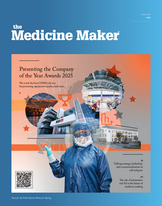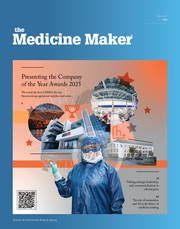The Ups and Downs of Medicine’s Vanguard
Cell therapy successes are widely hailed as breakthroughs, but will adverse effects and patient deaths hold the field back?
“Progress is slow in the pharma industry,” people say. But I think it’s unfair to apply this statement to every aspect of drug development. For example, many of today’s medicines are incredible when compared with what was available only 10 years ago. I started writing about drug development when biopharma was in its infancy, and it’s been fascinating to watch the field evolve to dominate company pipelines today. But biopharmaceuticals are not the final frontier of medicine. In recent years, another therapy type has been stealing the spotlight: cell therapies.
Today – even though only a few therapies have been approved – news concerning cell therapies is everywhere. In June, for example, results from a stem cell therapy trial for multiple sclerosis in Canada were published showing that most patients saw a substantial improvement in their condition (1). But cell therapies are not without risks – the treatment used for the trial was aggressive and one patient died from complications related to the cell transplant.
The potential of chimeric antigen receptor T-cell (CAR-T) therapies for treating cancer, particularly acute lymphoblastic leukemia (ALL), have received a great deal of attention of late. Also in June, Juno Therapeutics stated that clinical trials of its CAR-T treatment for ALL showed a complete response in 23 out of 30 patients with morphologic disease (2). Novartis has also been running trials for its own CAR-T therapy for ALL – claiming 93 percent remission in pediatric patients (3). However, as with the trial in Canada, Juno and Novartis’ trials have not been without complications. Some patients in Novartis’ trial experienced cytokine release syndrome and there have been deaths in other trials involving Juno’s CAR-T cells.
A patient death in a clinical trial should never be trivialized and it’s clear that there is still much to do before cell therapies enter mainstream medicine; however, given that the trials so far have mainly focused on diseases without current effective treatments (beyond medicines managing symptoms), the big question is: do the benefits outweigh the risks?
Regulators, including the FDA, are considering how to monitor the safety of CAR-T therapies (4), and companies are working on how to manufacture cell therapies on a larger scale. The industry seems confident that these therapies can safely make it to patients (eventually), but will they ever be first-in-line treatments? The fact that high percentages of participants in the trials are seeing improvements is certainly significant, but how will the risk-benefit ratio translate to larger patient groups?

Stephanie Sutton
Editor
- HL Atkins et al., “Immunoablation and autologous haemopoietic stem-cell transplantation for aggressive multiple sclerosis: a multicentre single-group phase 2 trial”, The Lancet, 16, 30169-6 (2016). PMID: 27291994.
- Juno Therapeutics, “Juno Therapeutics’ Investigational CAR T Cell Product Candidate JCAR015 Shows High Response Rates in Adults with B-cell ALL”, (2016). Available at: bit.ly/1OnthBi. Accessed June 20, 2016.
- Novartis, “Novartis highlights new CTL019 Phase II data demonstrating 93% complete remission in pediatric patients with r/r ALL”, (2016). Available at: bit.ly/1R7hTcl. Accessed June 20, 2016.
- RAPS, “FDA Proposes New Databases to Monitor CAR T-Cell Safety Across INDs”, (2016). Available at: bit.ly/24OwxHS. Accessed June 20, 2016.

Making great scientific magazines isn’t just about delivering knowledge and high quality content; it’s also about packaging these in the right words to ensure that someone is truly inspired by a topic. My passion is ensuring that our authors’ expertise is presented as a seamless and enjoyable reading experience, whether in print, in digital or on social media. I’ve spent fourteen years writing and editing features for scientific and manufacturing publications, and in making this content engaging and accessible without sacrificing its scientific integrity. There is nothing better than a magazine with great content that feels great to read.



















